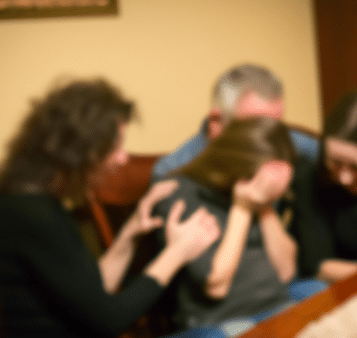What is on this page
Family Bereavement Therapy
When it comes to going through a bereavement, it can be an extremely lonely and overwhelming time in someone’s life. Grief is a life changing experience and whilst not wanting to feel alone, talking about how you feel can be just as challenging. Sometimes more so when it’s with those closest to you. Losing a loved one can cause a family to feel incomplete. Although you can’t take away someone’s pain during a bereavement, learning how to talk about your loved one and support each other through grief is important. Going to therapy can be a successful way to help a family process coming to terms with loss and the unpredictable feelings associated with grief.
Families and bereavement
Bereavement is the process of emotions we experience after the death of someone we care about such as the feeling of loss and grief. There is no time frame when it comes to grieving and there is no right or wrong way to act or feel as a bereavement can affect people in many different ways. During a time of grief, it is normal to experience a range of emotions, these emotions can come and go with no warning and can be easily triggered. These can include the below:
- Sadness
- Shock / disbelief
- Anger
- Denial
- Exhaustion
- Guilt
- Anxiety
- Loneliness
When it comes to the death of a loved one, family members experience a different range of emotions and process them in their own time. How a person processes a bereavement can vary depending on the below factors:
- Relation to the deceased – different relations will have experienced a different connection. Closer relations may find a bereavement much more emotionally challenging.
- Age of passing – coming to terms with the age a loved one passes can be a struggle. Losing someone young can invite feelings that their time was cut too short. Losing someone older can mean adapting to living without someone you have known all your life.
- Cause of death – how somebody passes is tough whether that be a sudden death, suicide, murder, or terminal illness. Knowing how a person spent their last moments can also have devastating effects on a person.
- How family members are coping – witnessing close family members struggling with loss whilst trying to cope with grief themselves can be distressing.
- Age when grieving – all ages young to old will grieve in their own way based on their life experiences and age-related mental processes.
- Mental health – Mental health and whether a person has previously suffered with anxiety and depression can play a big part in how they grieve.
Grief can be a trigger of mental health, and this can be a very challenging combination
Family and friends can be an incredible support system when it comes to learning how to handle living without a loved one. It can be a great comfort knowing someone knows what you’re going through, however it can also trigger distance and disputes. These arguments can be caused by past incidences, passed one’s belongings, money, and guilt. Experiencing a support system suddenly becoming unsupportive can worsen and extend the process of grief as it can feel like a secondary loss when falling out with other loved ones.
Is family bereavement therapy for me?
Communicating with your family is key. Communication – or lack of – can worsen situations when experiencing a bereavement and add tension to an already difficult time. Family therapy can help people to discuss their feelings with one another when going through the stages of grief – denial, anger, bargaining, depression, and acceptance – without judgement or bias.
Family bereavement therapy goals are to:
- Offer a safe space to help the family to express their thoughts and emotions.
- Explore the family dynamic and individual feelings to help identify issues and resolve emotional distress.
- Learn as a family to adapt to life after a bereavement.
- Help towards a better understanding of each other.
- Identify your family’s strengths and weaknesses such as caring for one another or having difficulty confiding in one another.
Helping your family through such a difficult time can also be an invaluable way of dealing with your own grief. Open discussions with the help of a counsellor can allow people to speak freely about their feelings and allow other family members to understand their emotions and give support. Identifying and communicating disputes and supporting balanced and honest discussions can be an extremely helpful approach for a family.
Talk with a therapist
Get in contact with Leone Centre if you and your family are struggling to cope after the loss of a loved one. Discussions during therapy are handled with the utmost sensitivity and all discussions are confidential. Leone Centre provides online and in-person family therapy, as well as professional relationship therapy online and at our practices in London. To book your first meeting with one of our family therapists call us on 0203 9301007 or click on the Leone Centre scheduling link

